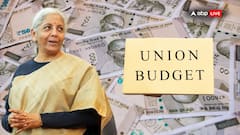Budget 2023: A Glimpse Of How India’s Annual Budget Is Prepared And When It’s Presented
The Budget-making activity usually begins in August-September, which is six months prior to the date of its presentation and it takes months to execute these tasks

Finance Minister Nirmala Sitharaman will present the last full Budget for this government on February 1, 2023. She would be presenting her fifth straight Union Budget. The Union Budget is the annual financial statement of a government that lays out a fiscal road map for the country for the next year. It is prepared by following a well-defined process that involves consultation, planning, and implementation.
The Budget is prepared by the ministry of finance in consultation with NITI Aayog and other relevant ministries. The Budget must be presented and approved by both houses of Parliament before the beginning of the fiscal year (April 1 to March 31). It takes months to execute these tasks, and the Budget-making activity usually begins in August-September, which is six months prior to the date of its presentation. Here's how Union Budget is prepared:
Issue Of Circular
A notification from the Ministry of Finance said that the pre-Budget consultation meetings will begin on October 10. However, preparation for the annual Union Budget starts way before September. The finance ministry starts the process by sending a circular to the officials of various ministries and departments. This includes requesting estimates from ministries, states, Union territories, and autonomous entities for the upcoming fiscal year.
This circular contains skeletal forms and the necessary instructions depending on the demands made by the various ministries. These would include the sums that the various ministries anticipate spending, for reminders of this fiscal year and for the upcoming fiscal year, on schemes, programmes, capital investments, and administrative costs.
Estimate forms include the prior year's actuals, current-year budget estimates, current-year revised estimates, proposed Budget Estimates (BE) for the upcoming year (with an explanatory note for the increase or decrease), actuals of the current year (available at the time of estimates preparation), actuals for the corresponding period of the previous year, Consolidation and Scrutiny.
Scrutiny Of Proposals Received And Preparing Estimates Of Revenue And Expenditure
From mid-October to mid-November, officials from the Expenditure and Economic Affairs Departments meet officials from all the central governments, ministries, agencies, and UTs to set Revised Estimates (RE) for the remaining year and Budget Estimates for next year.
After the proposals are received by the revenue secretary, they are reviewed by the top officials of the government. The revenue department, which collects revenue through income tax, corporate tax, goods and services tax, customs charges, and different cesses, begins estimating the potential revised tax receipts for the current fiscal year and the anticipated revenue for the following fiscal year.
Estimates of non-tax revenues, such as proceeds from spectrum sales, divestitures, and dividends from the Reserve Bank of India, state-owned financial institutions, and state-owned businesses are also made by the relevant departments for the current and following years. Once the data is approved, it is sent to the finance ministry.
Revenue Allocation
The next step of consolidation and scrutiny of Budget estimates are done by the Finance Ministry’s budget division from the financial perspective. It sees to it that no duplication takes place and estimates are made keeping in mind the economy. New expenditure is scrutinised strictly to ascertain its worthiness in keeping with the national plans. It consults the NITI Aayog in this regard.
The Departments and Ministries submit new schemes to the finance ministry through Budget estimates and consider its decisions as final. In case of a dispute, it is referred to the union cabinet, in which case its decision would be considered final.
Pre-Budget Consultation
The finance minister begins her own series of pre-budget consultations with a variety of stakeholders and interest groups beginning in mid-November, including industry associations, representatives from industries like agriculture and social and welfare sectors, labour organisations, economists, and others.
For Budget 2023, pre-Budget consultation started on November 21. The finance minister concluded her consultations for the Budget on November 28. A statement from the finance ministry said, "More than 110 invitees representing seven stakeholder groups participated in eight meetings."
Final Draft Preparation
By December, the finance ministry becomes "quarantined" and is closed to all visitors. Intelligence Bureau employees and paramilitary guards are stationed in North Block, particularly outside the offices of important Budget decision-makers. Secretiveness becomes crucial. After pre-Budget talks are over, the finance minister, in close cooperation with the prime minister, makes the ultimate decision regarding the requests of numerous stakeholders.
Led by the Chief Economic Advisor, the economic division provides the underlying assumptions for the upcoming fiscal year, including potential nominal GDP growth, the current macroeconomic situation, and other relevant information. The Economic Survey, which is presented in Parliament one day prior to the Budget, is prepared by the economic division of the Ministry of Finance.
Beginning in January the Finance Ministry Budget speech gets prepared. Many stakeholders contribute to this process including, the Revenue Secretary, Economic Affairs Secretary, Chief Economic Advisor, and Finance Ministry herself. Although till the very last minute, different estimates are worked on and reworked.
Halwa Ceremony And Printing Of The Budget
The government holds a halwa ceremony every year to commemorate the conclusion of the Union Budget-making process which begins in mid-Jaunary. After serving "halwa" to the entire workforce of the finance ministry, the ceremony officially kicks off the printing of the budget documents.
Due to the pandemic and health safety concerns, last year's Halwa ceremony was replaced by the distribution of sweets to core personnel as a result of their "lock-in" at their place of employment.
The officials involved in creating the Budget are "locked in" to preserve its confidentiality. All officials are housed in Budget Press, which is part of North Block, during the time leading up to the presentation of the Union Budget. Only once the Budget has been approved do these officers and employees leave the North Block.
Cabinet Approval And Budget Presentation
All of this comes to an end on February 1 when the Finance Minister delivers her speech to the Lok Sabha at 11 am after the Cabinet approves the Budget and the finance minister gives it to the President.
The Union Budget was presented at 5:00 pm on the final business day of the month of February up until the year 1999. In 1999 Yashwant Sinha, then Union finance minister in the NDA government changed the ritual by announcing the 1999 Union Budget at 11 am. The tradition started in 2001.
In 2017, departing from the colonial-era tradition of presenting the Union Budget on the last working day of February, Arun Jaitley announced the Budget on February 1.
Related Video
Union Budget 2025: Arvind Kejriwal lists the shortcomings of the Modi government's budget | ABP News | AAP





































